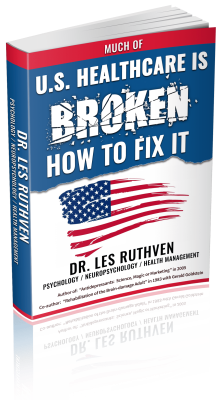Last updated on January 6th, 2024 at 08:33 am
The following comes from an article by John Rizvi which was posted online on April 3rd 2016. The following were the author’s candidates for the top 5 designation.
- Development of Antibiotics
- Vitamin Supplements
- Placebo Controlled, Randomized, Blinded Clinical Trials
- Advances in Cancer Treatment
- Development of X-rays
Most physicians and medical researchers would have a somewhat different set of top 5 major advances in healthcare. Numbers 1, 2, 4, and 5 are breakthroughs that clearly reflect physician training in the biological and physical sciences. Number 3, placebo controlled clinical trials, seems almost out of place with the others although I personally believe it deserves a place in any top 5 or top 10 breakthroughs.
From my review of the health literature I believe, however, it would be a rare physician who would include #3 as deserving any place in such a list of health breakthroughs. However, number 3 is the only way in healthcare that we are able to measure the efficacy and safety of drug and non-drug treatments. Even a sizable number of physicians would like to do away with placebo controlled trials. Many physicians and physician researchers would like to do away with placebo controlled trials entirely and rely on what is referred to as “everyday clinical experience”. I have observed this particularly in placebo controlled depression drug trials in which the drug efficacy is only a little better than the placebo response. Many psychiatrists, for example, have called these placebo controlled drug-depression trials unethical because we already know that these drugs are very effective in treating depression! These physicians believe that these clinical trials should not take these diagnosed depressed persons and give them an inert placebo.
The case for placebo controlled, randomized, blinded clinical trials
First, many health problems are self-limiting, that is, the patient gets better with or without treatment. Many episodes of back pain resolve in a week or two without treatment and because of this dozens of pet physician remedies (e.g., bed rest) proved in time to be ineffective or at times the treatment prolonged natural recovery. Physicians should remember that bloodletting was seen as a breakthrough in “medicine” for a variety of health problems, including the black plague, and lasted for over 3,000 years and was even recommended as an effective treatment in a medical book in the 1940s! All of us are capable of self-deception in all areas of life, including healthcare, and it is vital that health treatment decisions are based on employing the scientific method rather than opinion based on everyday clinical experience.
What is the state of FDA placebo controlled trials in modern days?
Having reviewed many FDA approved placebo controlled clinical trials in many areas of healthcare I would estimate that 40% of FDA approved drug and non-drug treatments show insufficient efficacy and safety. I believe the FDA is more concerned with safety than efficacy. Certainly remission of a health problem by a therapy is a desirable but impossible standard in every case but with some health problems a substantial reduction of distressing symptoms is a worthy goal. I would propose that an acceptable standard of symptom reduction would be twice the placebo response or greater but if this were implemented 40 to 50% or more drug and non-drug therapies would have to be removed from the market! In pharmaceuticals drugs are typically FDA approved if the drug effect is 15% to (in some cases) 50% greater than the placebo response! I began my review of the health literature largely in treatment for the mental disorders but later expanded my review of the “medical” literature. Earlier I thought that the FDA had a lower standard of efficacy for approving psychiatric drugs and a higher standard for approving drugs for “medical” problems. I was shocked to find out I had been wrong, the FDA should have a higher efficacy approval standard throughout all of healthcare! In a following article I will recommend needed changes in the FDA approval process to improve the efficacy and safety of drug and non-drug therapies.



